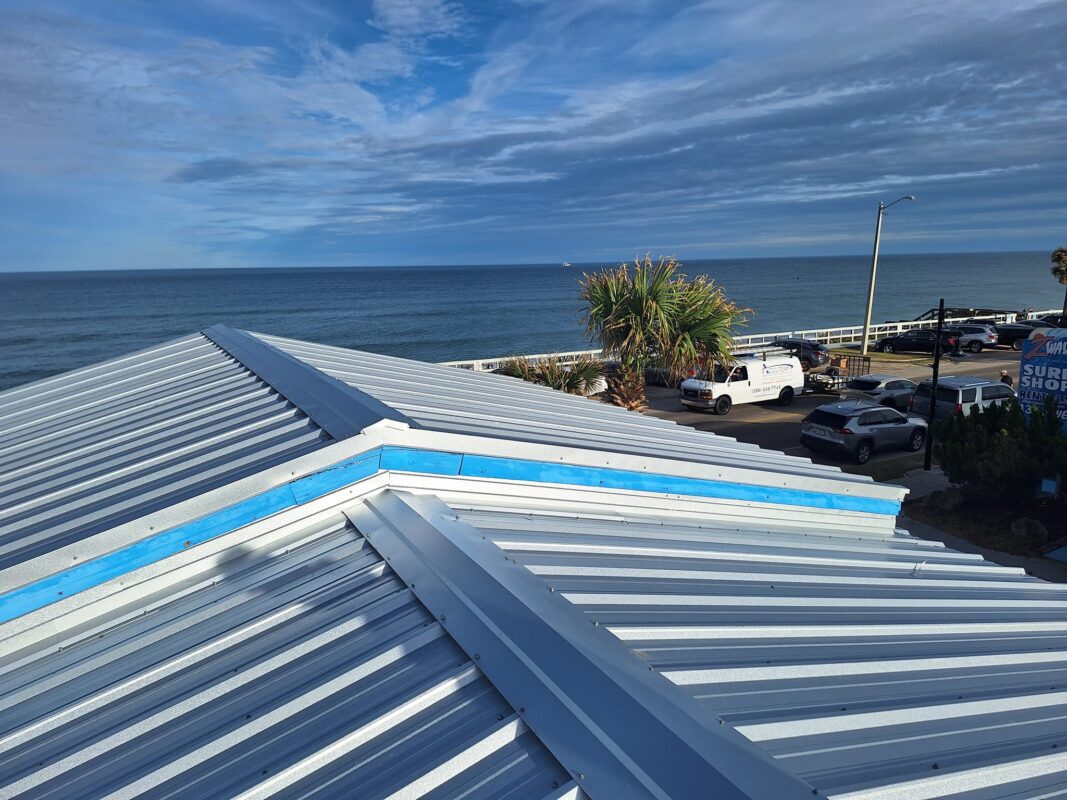Coastal roofing can present some unique challenges in comparison to typical roofing situations. Homeowners living on the coast must be aware of these differences in order to select the products that best meet their needs. Three C’s Roofing can help you understand those differences.
Environment is the primary consideration when selecting a system and materials for your roof. Coastal areas are prone to much higher wind averages and a constant ocean breeze that pushes salt air onto the home. This causes materials to degrade at an accelerated rate. Without better quality materials your roof will be prone to rusting of the flashing, drip edge and fasteners. There is a cost difference but over time it will save the homeowner money in minimizing maintenance and repairs.
For roofing in coastal areas, it is recommended to use peel and stick as a secondary water barrier and aluminum for flashing and drip edge as well as stainless steel roofing nails or screws when dealing with metal or tile. The peel and stick will hold up better in high wind zones. In the event of lost shingles, tile or metal panels in high winds, peel and stick is less likely to leak than other water barriers. While aluminum will pit over time; it will not rust as a galvanized metal will. Unlike galvanized materials, the heads on stainless-steel fasteners and nails will not corrode and will offer long term stability.
In coastal shingle roofing it is recommended to use an upgraded shingle such as Tamko Titan XT, as they are designed to withstand higher winds and more extreme environments than your average shingle. While concrete tile is fine and will hold up to the environment for many decades; clay is more resilient and less porous. Over time, salt air can get into the pores of concrete and start to break it down. In metal roofing the difference is more important. The typical galvanized or steel metal roof will not hold up well in a coastal environment. As with the drip edge and flashings, aluminum will not degrade as other materials will. Most metal suppliers will not warranty galvalume within a certain number of miles of coastal areas due the salt air destroying the material.
While Coastal living in Florida has its advantages such as beautiful scenery and access to beach activities, understanding the maintenance that goes along with living in coastal communities is important. Whether building a home or re-roofing your existing home, discuss your coastal roofing options with us by contacting Scott Crider at Three C’s Roofing. The professional roofing contractor your neighbors love!
Three C’s Roofing can help you with your roof inspection. Call us today!

